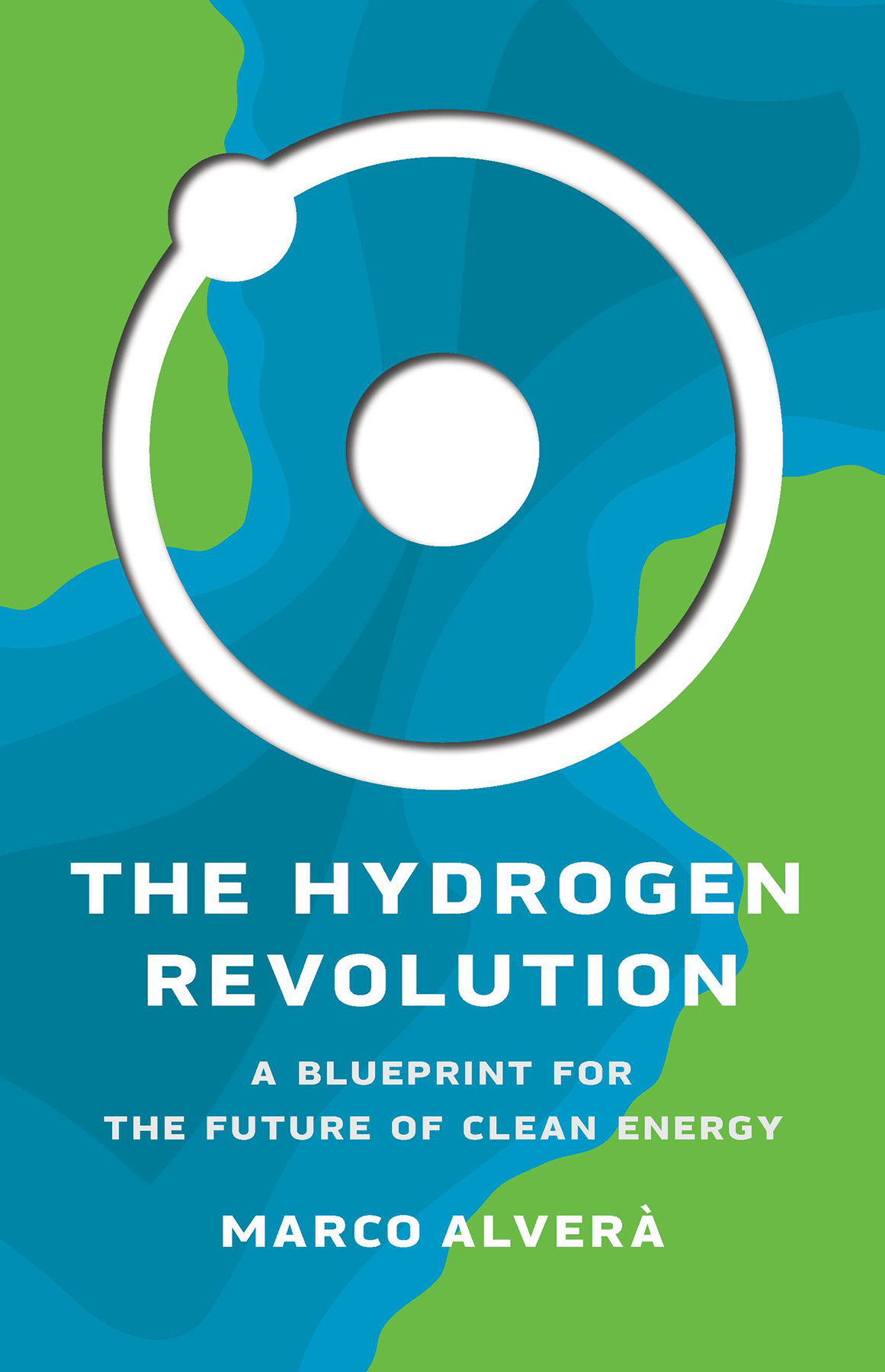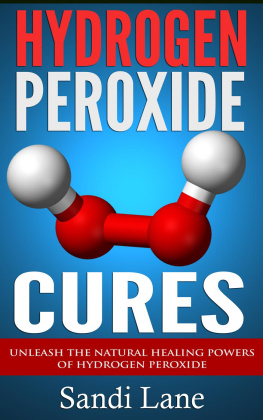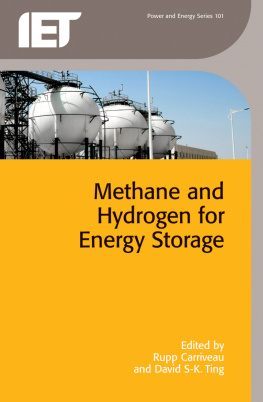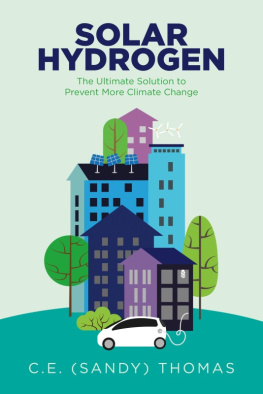The Hydrogen Revolution
Here you can read online The Hydrogen Revolution full text of the book (entire story) in english for free. Download pdf and epub, get meaning, cover and reviews about this ebook. year: 2021, genre: Romance novel. Description of the work, (preface) as well as reviews are available. Best literature library LitArk.com created for fans of good reading and offers a wide selection of genres:
Romance novel
Science fiction
Adventure
Detective
Science
History
Home and family
Prose
Art
Politics
Computer
Non-fiction
Religion
Business
Children
Humor
Choose a favorite category and find really read worthwhile books. Enjoy immersion in the world of imagination, feel the emotions of the characters or learn something new for yourself, make an fascinating discovery.

- Book:The Hydrogen Revolution
- Author:
- Genre:
- Year:2021
- Rating:3 / 5
- Favourites:Add to favourites
- Your mark:
- 60
- 1
- 2
- 3
- 4
- 5
The Hydrogen Revolution: summary, description and annotation
We offer to read an annotation, description, summary or preface (depends on what the author of the book "The Hydrogen Revolution" wrote himself). If you haven't found the necessary information about the book — write in the comments, we will try to find it.
Unknown: author's other books
Who wrote The Hydrogen Revolution? Find out the surname, the name of the author of the book and a list of all author's works by series.
The Hydrogen Revolution — read online for free the complete book (whole text) full work
Below is the text of the book, divided by pages. System saving the place of the last page read, allows you to conveniently read the book "The Hydrogen Revolution" online for free, without having to search again every time where you left off. Put a bookmark, and you can go to the page where you finished reading at any time.
Font size:
Interval:
Bookmark:

Copyright 2021 by Marco Alver
Cover design by Ann Kirchner
Cover image Studio_G / Shutterstock.com
Cover copyright 2021 Hachette Book Group, Inc.
Hachette Book Group supports the right to free expression and the value of copyright. The purpose of copyright is to encourage writers and artists to produce the creative works that enrich our culture.
The scanning, uploading, and distribution of this book without permission is a theft of the authors intellectual property. If you would like permission to use material from the book (other than for review purposes), please contact permissions@hbgusa.com. Thank you for your support of the authors rights.
Basic Books
Hachette Book Group
1290 Avenue of the Americas, New York, NY 10104
www.basicbooks.com
First published in Great Britain in 2021 by Hodder Studio
First US Edition: November 2021
Published by Basic Books, an imprint of Perseus Books, LLC, a subsidiary of Hachette Book Group, Inc. The Basic Books name and logo is a trademark of the Hachette Book Group.
The Hachette Speakers Bureau provides a wide range of authors for speaking events. To find out more, go to www.hachettespeakersbureau.com or call (866) 376-6591.
The publisher is not responsible for websites (or their content) that are not owned by the publisher.
Typeset in Bembo MT by Hewer Text UK Ltd, Edinburgh
Library of Congress Control Number: 2021942288
ISBNs: 9781541620414 (hardcover); 9781541620421 (ebook)
E3-20211020-JV-NF-ORI
To Lipsi and Greta who are made of starstuff
Explore book giveaways, sneak peeks, deals, and more.

Were in Venice, in the year 2050. It is the thirty-fifth anniversary of the Paris Agreement, and it is a celebration. The spectre of climate change is finally exorcised. Global temperatures have started to stabilise, and we are set to feel the first refreshing drafts of global cooling. Rainforests and reefs survive as does this beautiful city. Wildlife that was threatened is now returning.
We can trade, prosper and travel while respecting the equilibrium of our planet.
It isnt just our lighting and our electric vehicles that are totally green. Everything is. We use green fertilisers to grow our food. Our homes are connected to a green energy grid and produce, exchange and store their own clean energy. Ultralight vertical taxis bunny-hop over traffic jams. Long-haul aeroplanes leave contrails of ice in the sky. Boats, trucks, and buses glide noiselessly, no longer belching out CO2 and fumes but emitting pure water vapour. The particles and pollutants that clogged up our cities and our airways are a thing of the past.
And all this because we are harnessing the power of the sun and the wind directly, and transforming it into hydrogen.
We are piping the desert sunlight and the ocean winds into our homes. Europe imports solar energy from North Africa and the Middle East, driving prosperity in the region. Australia harvests the strongest sunshine on Earth, then ships it to Japan on boats. China and India use Mongolian wind and Rajasthani sun to tackle the twin problems of air pollution and carbon emissions. The cost of energy is continuing to fall for everyone, helping to fuel economic growth and development around the world and create millions of jobs.
Thats the dream.
Now lets return to reality.
Our efforts to solve climate change are way off track: 2020 was the second-warmest year on record, trailing only 2019. If we hadnt had Covid-19, 2020 would be remembered for the Australian bushfire disaster, which killed thirty-four people and more than three billion animals, and for the unprecedented wildfires in Brazil and California.
Climate change is also striking home for me, because I come from Venice. My hometown, ravaged by catastrophic flooding in 2019, has become a symbol of all that we have to lose from climate change and rising sea levels. Venice is not alone. Coastal areas around the world are threatened by rising sea levels. Cities are spending billions on flood defences. Extreme weather events cause untold damage to people, animals and livelihoods. Rising temperatures are threatening to make parts of the globe virtually uninhabitable.
Ive long been concerned about climate change, but pessimistic about our chances of avoiding catastrophe. I was exposed to a healthy dose of climate science relatively early in my career as an energy executive, during a hike up a Norwegian mountain with climate strategist and author Gabrielle Walker. As we huffed and puffed (well, me mainly), Gabrielle explained how of energy.
She was right, of course, and it was the wake-up call I needed. I started to educate myself about climate change, and soon recognised that we were in very grave danger indeed. And then my daughters were born; since then, when I read about the predicted effects of unrestrained warming in 2100, I think about what it might mean for them and their generation.
The more engaged I became, the more my concern grew. I could see what fossil fuels were doing to the planet. What I couldnt see was how we could stop relying on them to power our industry, our travel and our trade. Yes, renewable electricity was making great strides, but electricity only accounts for 20% of our energy use. Even if we cleaned all of that up completely, using the sun and wind to generate clean electrons, we would still have the other 80% of the energy system to worry about. Thats the energy we use in transport, industry and heating, which today rely mainly on molecules from coal, oil and natural gas.
We can switch some of those end-uses from molecules to electricity, of course. Thats what we are trying to do with electric vehicles, and electric heating for the home. But theres a limit to how much of the energy system we can switch to renewable electricity. Some sectors, such as heavy transport, industry and winter heating are particularly difficult for electricity to fully penetrate. The International Renewable Energy Agency (IRENA), sees electricity rising to just under 50% of the energy mix by 2050, which is wonderful, but still leaves another 50% to worry about. If we are serious about avoiding catastrophe, we need other technologies as well as renewable electricity and we need them fast.
For many years, overcoming the enormous inertia in government, business and consumer behaviour felt impossible. But then, a few years ago, what looked set to be a boring business meeting changed everything.
I was in my office in Milan, in November 2018, almost at the end of a long day. As CEO of Snam, an energy infrastructure company with natural gas pipelines in Europe and the Middle East, part of my job is to think about what the global energy system of the future might look like, and what we might need to build to make it happen. Among my last appointments was the Snam scenarios team with a study that showed how Europe could reduce its CO2 emissions to zero by 2050. The idea was to look at a host of clean energy sources solar and wind power, biomass and hydrogen and how much each might cost to produce, transport, store and use. Armed with this knowledge, a model could figure out the least costly combination of these sources in 2050.
As I looked through the study, I noticed there seemed to be a lot of hydrogen in 2050. An awful lot, really, for something that was almost absent from the energy mix and the policy discourse.
Font size:
Interval:
Bookmark:
Similar books «The Hydrogen Revolution»
Look at similar books to The Hydrogen Revolution. We have selected literature similar in name and meaning in the hope of providing readers with more options to find new, interesting, not yet read works.
Discussion, reviews of the book The Hydrogen Revolution and just readers' own opinions. Leave your comments, write what you think about the work, its meaning or the main characters. Specify what exactly you liked and what you didn't like, and why you think so.








